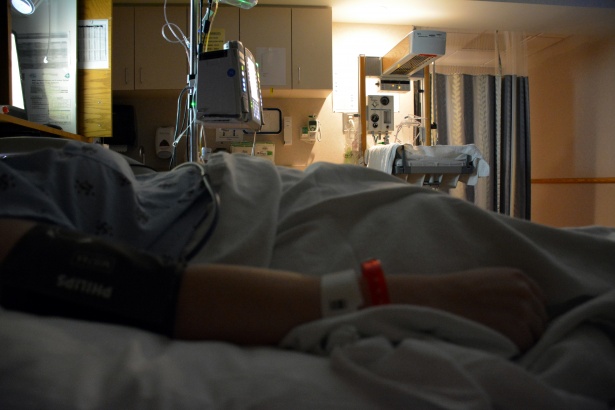What to Expect After a Pancreatic Cancer Diagnosis

Hospitals. No one likes them, but many of us will end up in one at some point. Sometimes, it’s for happy events, such as a new addition to the family. But, a lot of the time, it’s for far more serious reasons.
One of these reasons might be for tests to determine your health. No one likes waiting for test results, especially when those results might mean you have cancer.
Hearing those dreaded words that confirm your cancer diagnosis can be difficult to hear. It might feel like your life is over. It might feel overwhelming. You might be scared, angry, or numb. All of these feelings are normal.
The best thing to do at this stage is to understand what your cancer diagnosis means. This guide aims to help you on this journey, specifically with regard to pancreatic cancer diagnosis.
Understanding terminology
Your future care will depend on what stage your cancer has been determined to be. Pancreatic cancer can be categorised into four stages. These are:
- Stage 1: This is when the cancer is small and contained within the pancreas.
- Stage 2: This is when the tumour is bigger than those in Stage 1 but still not big enough to spread to the surrounding organs
- Stage 3: This is the stage when the tumour is considered quite large. It also usually means the cancer has spread to surrounding areas.
- Stage 4: This is the last stage and is usually used to describe cancers that have grown exponentially
Your cancer can also be divided into different grades. These are described as:
- Grade 1: The cancerous cells look mostly like normal cells and tend to grow slowly. Also known as low grade.
- Grade 2: These cells will look more irregular than low-grade cancer, and they grow a bit faster. These are called intermediate.
- Grade 3: Cells in this grade appear very abnormal. They grow very quickly. This can also be called high grade.
Knowing your treatment options
The treatment plan for your cancer will largely depend on the stage of your cancer and its exact location. There are several different kinds of treatment for pancreatic cancer, and some include:
- Surgery: There are different kinds of surgery available, and the one your team picks will largely depend on where your cancer has spread to. For example, the Whipple Procedure will remove the head of your pancreas, part of your stomach and some of your small intestine. Whereas, a pancreatectomy removes all of this plus the entirety of your pancreas.
- Radiotherapy: This is an option when the cancer has spread too much to remove with surgery alone, so targeted radiation is used. Radiotherapy for pancreatic cancer can be combined with chemotherapy for best results.
- Chemotherapy: This is often used alongside other forms of treatment. This therapy can be given through tablets or IV infusions.
- Combination therapy: This is a combination of several treatments with the intention of creating the most beneficial results
However, it’s important to remember that your oncology team will consider your preferences when making your treatment plan. Don’t be afraid to ask questions and voice your opinion.
Treatment is still an option for those with later-stage cancer. Treatments can sometimes be used to relieve symptoms, not just in attempts to cure the cancer.
Keeping positive
This is probably the hardest thing to do on this list. Going through the motions and following the doctors’ recommendations might be one thing, but staying positive throughout this journey can become difficult.
However, it is not impossible. The best way to stay positive is to celebrate every little win—no matter how small. Make sure you treat yourself on days of treatment or hospital appointments. Self-care is key here. Start exercises such as journalling or mindful colouring to relieve negative feelings. It’s not easy, but having positive friends and family around you who will pick you up when you’re down will definitely help.
All the best
Getting diagnosed with cancer is scary, and living through treatment is draining. Knowing what’s to come can help with feelings of helplessness and worry, so doing plenty of research into your condition can certainly help.
If you’d like more information and support during your journey, make sure to check out Pancreatic Cancer UK. Here, you’ll find resources, support, and real-life stories.






